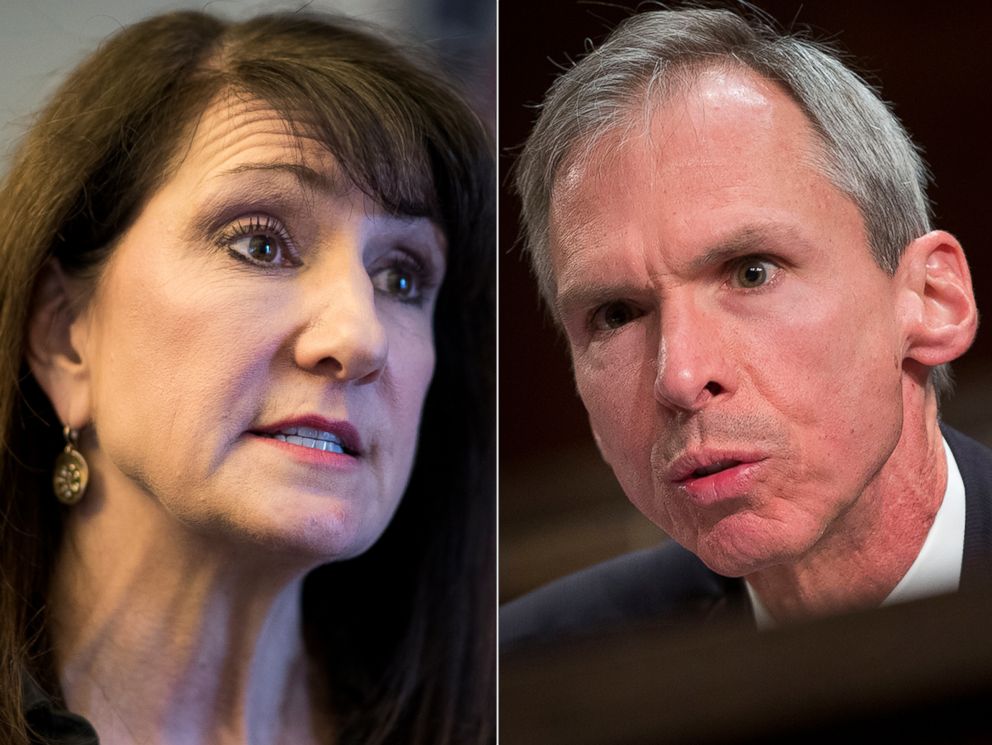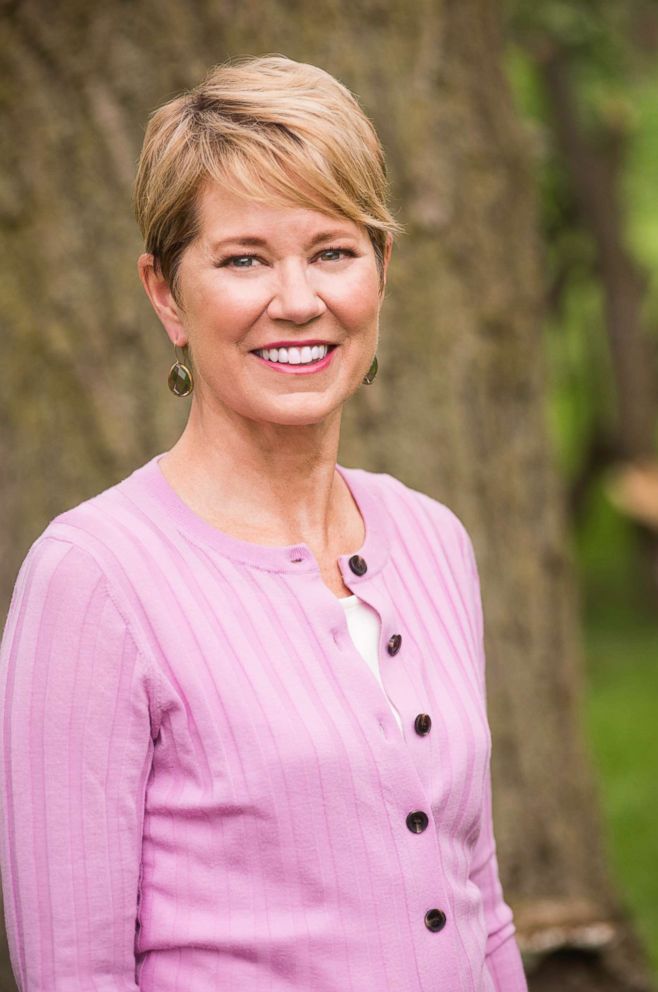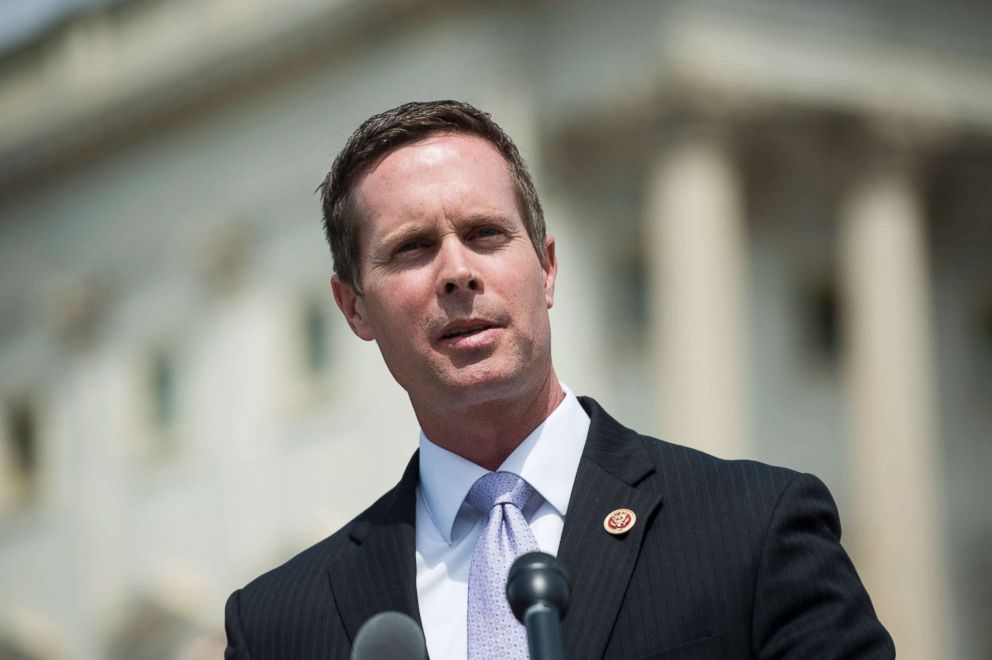5 things to watch for in the Illinois primary
Both parties are sorting out primaries for governor and U.S. House seats
In one of ABC News’ “18 for '18” races, the fight for the identity of the Democratic Party between its progressive and establishment wings has spilled into Illinois 3rd Congressional District where Blue Dog Democrat Dan Lipinski is facing a challenge from activist Marie Newman, who has the backing of Sen. Bernie Sanders, EMILY's List and a handful of labor groups.
Money has dominated the high-profile gubernatorial primaries in the state — over $160 million has been spent already on the Republican and Democratic sides.
Gov. Bruce Rauner, likely the most vulnerable GOP incumbent governor in the nation, has been dogged by a budget crisis and sagging approval ratings. J.B. Pritzker, the heir to the Hyatt Hotel fortune, has emerged as the front-runner on the Democratic side, setting up a multi-million versus billionaire battle that could be the most expensive gubernatorial race of the cycle.
Democrats are also sorting out primaries in a number of congressional districts both in the Chicago suburbs and downstate that are expected to be competitive come November.
In a continuation of a national trend emerging in 2018, female candidates have emerged as contenders in congressional races across the state, a sign that the 'pink wave' may continue its rise Tuesday night.
Here are five things to watch ahead of Tuesday night’s competitive primaries:
IL-03: Blue Dog Democrat fights for his political life in Dem proxy war
As Democrats look to take back the House in 2018, the party is still grappling with internal divisions between its more progressive and centrist wings.
No race highlights the divisions within the party more than Illinois’ 3rd Congressional District. Seven-term incumbent Dan Lipinski — one of the most conservative Democrats in Congress — is facing a serious challenge from progressive newcomer Marie Newman.

A Lipinski has represented the area in Congress for the last 35 years. Rep. Dan Lipinski was first elected to Congress in 2004, after his father, Rep. William Lipinski, dropped out of the general election, and the Democratic Party tapped the younger Lipinski to fill the empty slot.
Since being elected, Lipinski has held positions often at odds with the rest of his party. He holds strong pro-life beliefs and voted against Obamacare and the DREAM act. He also did not publically endorse President Obama for a second term.
Newman is the first serious challenge Lipinski has faced and he's looking to capitalize on the progressive movement that began after the 2016 election. Newman — who is running for office for the first time — is campaigning on a pro-choice, pro-LGBT, healthcare-for-all agenda.
Perhaps the starkest indication of the divide between these two candidates is the big name endorsements they’ve nabbed. Minority Leader Nancy Pelosi — who has said that abortion should not be a litmus test for the party, and has faced pressure to step aside to allow for new leadership in the party — has given her support to Lipinski. On the other side, progressive Senator Bernie Sanders has thrown his support behind Newman and her agenda.
One thing the district doesn’t have to worry about? Pushing conservative Democrats to vote for a Republican if Newman wins Tuesday night.
The district is deeply blue and went for Bernie Sanders in 2016 primary and Hillary Clinton in the General Election.
The only Republican running in the district was Holocaust denier and self-described ‘white racialist’ Arthur Jones until after the filing deadline had passed.
The Million Dollar Men
With over $160 million spent by candidates on both sides, the Illinois gubernatorial race has the potential to be the most expensive in American history, and with two ultra-wealthy businessmen expected to capture nominations Tuesday night, the heavy spending seems poised to continue.
There is no more vulnerable incumbent Republican governor in the country than Bruce Rauner. While he was able to buck Illinois’ consistent blue tint and unseat a sitting governor in 2014, Rauner faces an uphill race for re-election in 2018 in what could be the most expensive gubernatorial race in U.S. history.
Buoyed by the eye-popping $57.2 million of his own money that he gave his re-election campaign, Rauner is hoping to stave off a pack of eager Democrats eyeing the governor’s mansion in the nation’s sixth most populous state.
State Rep. Jeanne Ives is mounting a primary challenge to Rauner from the right, and just last week national Democrats tried to put their thumb on the scales. The Democratic Governors Association rolled out two television ads, one focusing on Rauner’s record on jobs and the budget and the other painting Ives as “too conservative” for Illinois in an attempt to boost Ives and energize the state’s more conservative voters against Rauner.
Just last week Rauner vetoed a gun control bill that passed the state legislature, a sign that he may be worried Ives could outflank him from the right on Tuesday.
On the Democratic side, J.B. Pritzker, the heir to the Hyatt Hotel fortune, is leading the pack for the nomination but is tangled in an expensive primary against State Sen. Daniel Biss and Chris Kennedy, the son of former Attorney General Robert F. Kennedy. According to campaign finance records, Pritzker has spent close to $70 million so far in his bid to unseat Rauner but has been dogged by his connections to former Democratic Governor and convicted felon Rod Blagojevich. Rauner has run an ad featuring a recording of Pritzker speaking to then-Gov. Rod Blagojevich in 2008 about who would replace then Illinois Senate and future President Barack Obama.
Pink wave rising
A record number of women are seeking office in 2018, with more than 400 women running nationwide. Women in Texas saw great success in the first primary of the 2018 season — more than half of the 50 women running for Congress won their primaries or advanced to runoff elections.
Now Illinois is looking to continue the ‘pink wave.’
Currently, only four women represent Illinois in Washington out of its 20-member congressional delegation. This year, 17 women are running for House Seats.

One race to keep an eye on Tuesday night is Illinois 6th Congressional District. That race alone has five women competing for the Democratic slot on the ticket and the chance to take on Incumbent Rep. Peter Roskam in November. The suburban district went for Clinton in 2016—which could spell trouble for Roskam, who has generally supported President Trump’s agenda.
Vulnerable GOPers get their opponents
Democrats see the path to the 24 seats they need to regain control of the House as going through the nation’s suburbs.
These suburban-held GOP seats are so important to the party, the Democratic Congressional Campaign Committee criticized one of their own candidates in Texas in attempt to influence the race toward their favorite to take on Republican Rep. John Culberson, whose district lies just outside of Houston.
Now the suburban attention turns to west of Chicago and the 6th Congressional District seat held by five-term GOP Rep. Peter Roskam.

Clinton won this seat by seven points in 2016 and it’s a heavy Democratic target this cycle.
Seven Democrats are running for the right to take on Roskam in November.
Kelly Mazeski, a scientist, has the backing of EMILY’s List and Illinois Democratic Reps. Cheri Bustos and Jan Schakowsky. She’s also been the biggest fundraiser in the race, bringing in over $800,000, according to Federal Election Commission reports.
A breast cancer survivor, she announced her candidacy last May on the same day Roskam joined his fellow Republicans in voting to repeal Obamacare.
Other contenders include Amanda Howland, who ran against Roskam in 2016 but lost to him by 19 points, and Carole Cheney, a former staffer for Democratic Reps. Bill Foster and Robin Kelly, both of whom have endorsed her.
Finally, there’s small business owner Becky Anderson, energy executive Sean Casten, attorney Jennifer Zordani, and Ryan Huffman, a journalist who worked for President Obama’s 2008 campaign.
Republicans are downplaying concerns about this district. One GOP strategist pointed out that Roskam has long ties the district. He grew up in the area and represented it in the state legislature from 1993 until he was elected to Congress in 2007.
Republicans also believe their tax cut message will play well here and in other suburban races.
Unions flex their political muscle
Unions have always been a political force in Illinois, and this cycle is no different.
In the wake of former Secretary of State Hillary Clinton's loss in the 2016 presidential election, Democrats are still fighting to regain their standing with many blue-collar voters that have abandoned them in recent years. In Illinois, Democrats are eagerly courting the most powerful labor voices in the state, who in this instance have continually clashed with Rauner over "Right to Work" laws and other issues.
In the race between Lipinski and Newman, organized labor is split, with the incumbent scoring the endorsement from the Illinois AFL-CIO and the Chicago Federation of Labor, while Newman is backed by the SEIU Local 1.
At a press conference last month, SEIU Illinois State Council President Tom Balanoff bashed Lipinski as "out of touch with his constituents" and labeled Newman as "a progressive champion that third District working families need in Congress."
Organized labor is no fan of Rauner, and Prizker has worked hard to court them for the anticipated November match-up. Pritzker scored the endorsement of the Illinois AFL-CIO and a handful of other labor groups who are expected to go all in to defeat Rauner in November.




